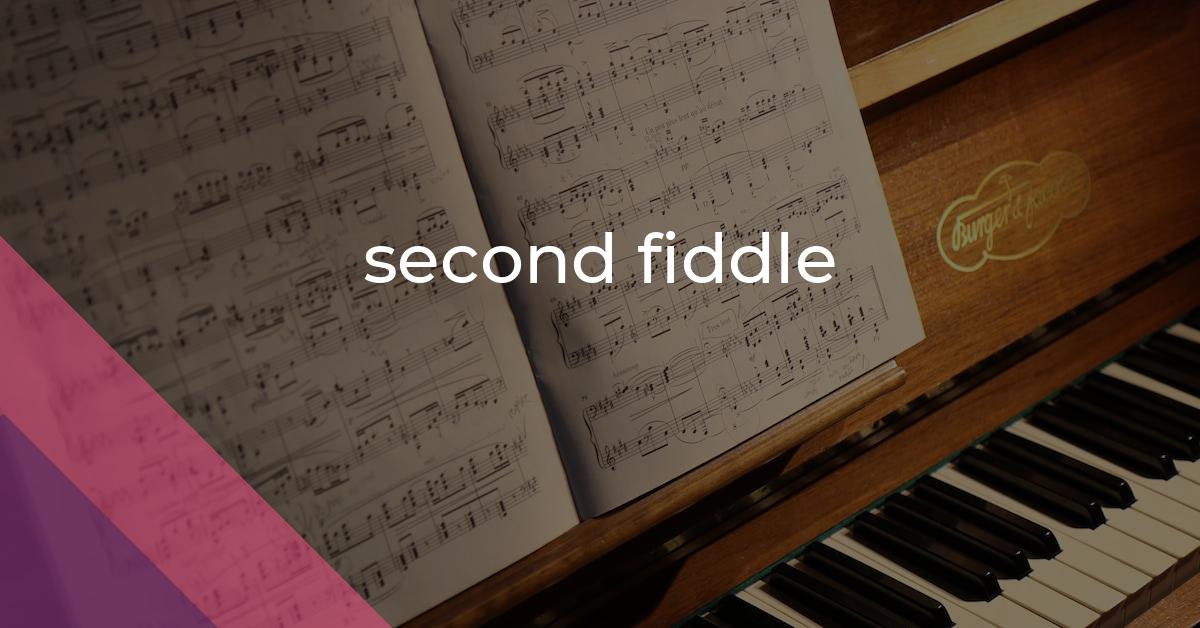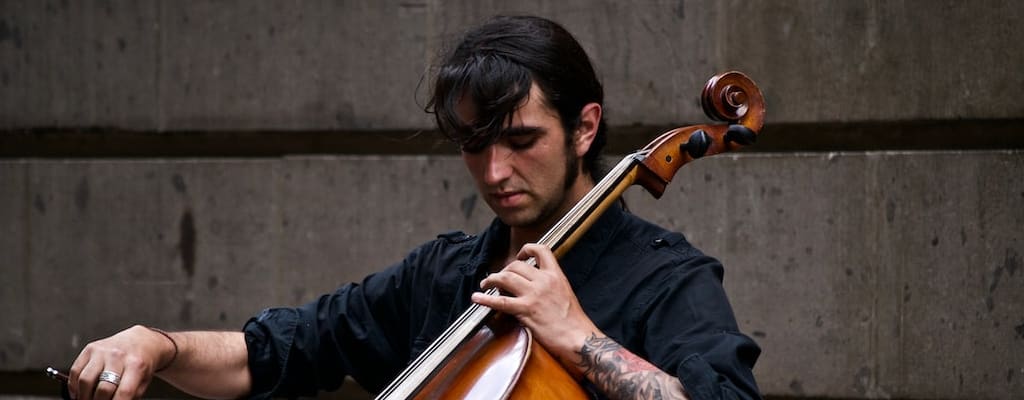second fiddle: Idiom Meaning and Origin
What does ‘second fiddle’ mean?
The idiom "second fiddle" means to play a subordinate or less important role compared to someone else, often feeling overshadowed or unnoticed.

Idiom Explorer
The idiom "second string" refers to a person who is not as important or skilled as someone else in a particular situation or role.
The idiom "second-rate" refers to something of inferior quality or standard compared to others in the same category.
The idiom 'second nature' means something that is so familiar or habitual to a person that it feels natural and effortless. It refers to a behavior or skill that has been practiced and repeated so often that it becomes automatic, like a reflex.
The idiom "second-guess" means to doubt or question a decision or action that has already been made, often with the belief that a different choice would have been better.
The idiom "second gear" refers to the next level of effort, speed, or intensity in a particular activity or situation. It implies a higher level of performance or action being taken compared to the initial phase or starting point.
The idiom "plumber's helper" refers to a person or thing that assists a plumber in their work. It implies that the individual has a subordinate or supporting role in the plumbing profession.
The idiom "play the fool" means to act silly or foolish, often for amusement or as a way to hide one's true thoughts or intentions.
The idiom "play someone like a fiddle" means to manipulate or control someone skillfully, often for personal gain or amusement.
The idiom "play second fiddle" means to take on a subordinate or less important role.
FAIL
The idiom "play second fiddle" originated from the world of music, specifically from the role of the second violinist in an orchestra or string quartet. The second violinist supports the first violinist by playing harmonies or filling in the orchestral texture. This expression figuratively describes someone who is in a subordinate or lesser position, often feeling overlooked or undervalued. It is a metaphorical representation of being in a secondary role or having a lower status compared to someone else.
The term "second string" is closely related to the idiom "second fiddle." It refers to the backup or substitute players in a team or group. In a musical context, it would be the second violinist waiting in the wings to step in if the first violinist is unable to perform. Similarly, in other areas of life, being considered "second string" means being in a supporting role or being less important than the primary individuals or participants.
On the other hand, the idiom "play first fiddle" is the opposite of "play second fiddle." It refers to taking the leading role or being in a position of prominence. Just as the first violinist in an orchestra plays the melody and takes the lead, "playing first fiddle" metaphorically signifies being in the forefront, making decisions, and having significant influence or authority.
Lastly, the phrase "second-rate" is another idiom related to "second fiddle." It describes something or someone of inferior quality or ability. The use of "second-rate" implies being considered less important or valuable compared to others. Just as the second violinist is perceived to have a lesser status or role, something described as "second-rate" is seen as subpar or not as good as its superior counterpart.
The idiom "second fiddle" has evolved over time to extend its meaning beyond the musical realm. It is now commonly used in various contexts to describe situations where someone is in a subordinate role or feels overshadowed by another. This can be seen in personal relationships, where one person may feel like they are constantly in the shadow of their more successful partner or friend.
Additionally, "second fiddle" can be applied in organizational or social hierarchies, where certain individuals hold positions of less authority or importance. These individuals may feel overlooked or undervalued, as their contributions may not be as prominent or recognized as those of their more dominant counterparts.
Furthermore, "second fiddle" can be used to illustrate situations where one is forced to take a supporting role, yielding the spotlight to someone else. This is often seen in team dynamics, where certain members are required to support and assist the leaders or more influential individuals.
The idiom "second fiddle" is a well-known phrase that is widely recognized and understood, both by native speakers and non-native learners of English. Its metaphorical nature allows it to be easily applied in various situations, as it captures the essence of feeling subordinate or undervalued.
The idiom "second fiddle" originated from the musical context of the second violinist in an orchestra or string quartet. It has since been used to describe someone in a lesser or subordinate position, often feeling overlooked or undervalued. This expression is closely related to idioms such as "play second fiddle" and "second string," which convey similar notions of being in a supporting or less important role. Conversely, the idioms "play first fiddle" and "second-rate" represent the opposite ends of the spectrum, with the former indicating a leading role and the latter suggesting inferiority. These idioms are widely recognized and understood, and they continue to be relevant in our modern lexicon.
Example usage
Examples of how the idiom "second fiddle" can be used in a sentence:
- She was tired of always playing second fiddle to her more successful sibling.
- After being the team's star player for years, he had to get used to playing second fiddle to the newcomer.
- The CEO was not happy about playing second fiddle to the company's new chairman.
The idiom "second fiddle" is used when someone is placed in a subordinate or less important position compared to another person. It implies being in a supporting or secondary role, often associated with a lack of recognition or praise. The first example sentence portrays someone feeling overshadowed by a more accomplished family member. The second example refers to a prominent athlete having to accept a reduced role due to the arrival of a talented newcomer. The third example illustrates a high-ranking executive feeling resentful about having to take a secondary position within the company's hierarchy.
More "Position" idioms



